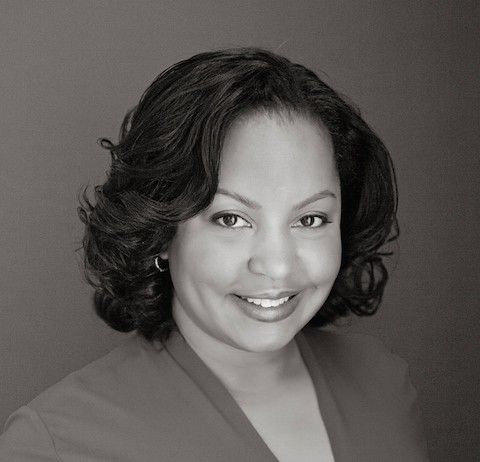Poverty is a form of violence.
It holds millions in bondage, locked into neighborhoods stripped of public or private investment, trapped in low-wage jobs. Often, this violence is state-sponsored via policies that benefit the wealthy at the expense of the poor, who are often brown and black. So it is a short walk from national protests against police brutality to calls for economic justice.

Rookie activist Tami Sawyer wants to help people in Memphis — the poorest large metro area in the nation — make that journey. In the past two weeks, the 32-year-old St. Mary’s alumna organized two die-ins — one outside the National Civil Rights Museum and another on Beale Street. These and dozens of similar protests nationwide were sparked by deaths of two unarmed black men — Michael Brown in Ferguson, Missouri, and Eric Garner in Staten Island. In both cases, a grand jury failed to indict the white officers who killed them.
But the fury on display at protests and on social media is not directed solely at a warped criminal justice system. It is the entire game that is rigged.
“We can scream, we can yell, we can cry on TV,” Sawyer said, “but it will fall on deaf ears. We don’t have economic power.”
For proof, look at last week’s report from the Pew Research Center. Although the economy is recovering, the black-white wealth gap is now at its highest since 1989. In 2013, the median household wealth of white families ($141,900) was 13 times greater than that of black families ($11,000).
African Americans make up 14 percent of the country’s population, but black-owned businesses bring in just 0.5 percent of the nation’s receipts.
It is difficult to amass wealth when just two generations ago, black people were shut out of some trades, red-lined out of more desirable neighborhoods by racist lending policies, and banned from state-run colleges funded by their tax dollars.
With little inter-generational wealth, black people are more likely to be unemployed and, regardless of household income, live in neighborhoods where property values are falling. These poor neighborhoods are more likely to be hyper-policed, which puts black people at greater risk of encounters that could be defused by smart policing or that could end in death.
That’s an oversimplified version of how the criminal justice system functions in a larger machine that devalues black lives. (For the complete account, read Michelle Alexander’s The New Jim Crow.) But in this context, it makes sense that the Ferguson grand jury decision, announced the Monday before Thanksgiving, spawned the #BlackOutBlackFriday shopping boycott. (Black Friday sales were down 11 percent, but pundits were loathe to credit hashtag activism.)
Sawyer supported the boycott but wondered about the long game. “You’re going to boycott on Friday, but when Cyber Monday comes up, you’re going to go spend money with Best Buy,” she griped.
Her Instagram page became a photo gallery to encourage people to shop with black-owned businesses on #buyblackfriday and beyond. “At the end of day, we don’t make it anywhere, if our own people don’t support it,” said Sawyer, who does employee development for government agencies.
Her vision of economic empowerment grew last week after a chance encounter with D’Army Bailey, a retired judge, attorney, and activist. At a black-owned coffee shop/office space in Uptown, Sawyer talked strategy with a man she’d met through the die-ins.
Bailey sat at a nearby table, eavesdropping. Then he interrupted. “He said, ‘Besides lying in the street, what else do you have planned?'” Sawyer recalled.
He was brusque, but she listened. “He said go to the county commission meeting and see what they’re debating today.”
She did. On the agenda was the economic impact plan for Graceland, which calls for $125 million in public investments to build a private hotel on the property and create 282 jobs.
“The jobs aren’t spelled out,” Sawyer said. “Are they going to be low-wage? Are they going to be middle-income?”
Those questions weren’t asked at the meeting. The lone vote against the plan came from Bailey’s brother, Walter.
“Being aware of how the money in this city is spent is important,” she said. “Our freedom as a culture ties into our economic freedom.”
Her next protest is planned for Christmas Eve, outside Graceland.